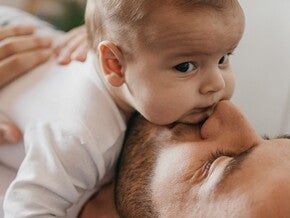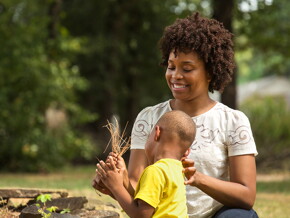
10 money-saving tips for having a baby on a budget
Working out how much to save for a baby can be a daunting task. Follow our easy money-saving tips for parents-to-be, from creating a household budget to buying only baby essentials—and get planning for your baby on a budget!
- Look into benefits
Apply for child benefits if you’re entitled to any where you live. This could be in the form of a one-off payment when your baby is born, a weekly or monthly payment, or childcare or food vouchers—every little bit helps when you’re planning to have a baby on budget. Check your government website to see if you’re eligible as it may depend on your employment status, household income, and number and age of your children.
- Start creating a household budget
Money-management apps are great for tracking the money coming in and out of your account. A good way to budget is to follow the 50/30/20 rule—50% of your budget should go on the essentials—for example, rent or mortgage, bills, and food— 30% on other spending, and 20% on saving. If you’re coming up short after working out how much to save for a baby, see what non-essential outgoings you could cut back on.
- Save for your baby
Consider opening a child savings accounts when your baby is born as you may not have to pay tax on the amount saved. A sensible approach is to set up a regular bank transfer to deposit money into the account each month. That way, it’ll be squirrelled away before you even miss it, and you’ll have peace of mind that your nest egg grows as your baby does. Whether you’re putting money aside for buying baby gear or starting a university fund, it’s worth shopping around for the best interest rates so you can save the most for your child’s future.
- Shopping for baby on a budget?
Make a list of baby essentials and try to only buy items you’ll really need. For example, a car seat, cot, buggy, diapers, a few one-pieces, vests, and a baby blanket. If you’re having a baby shower, you could always set up a gift registry and ask people to contribute toward some of the more expensive items. Not sure whether you’ll need something? Ask friends and family with experience. For example, it may not be worth buying lots of breastfeeding clothes and accessories or bottle-feeding equipment until you see how your feeding plans work out. They may have other money-saving tips for parents too.
- Look for freebies
Ask friends and family for hand-me-downs, they may appreciate the excuse for a clear- out. Depending on where you live and your healthcare provider, you may even be entitled to a free baby box, packed full of essential items! Finland have been giving them out to new moms since the 1930s, and now other countries are starting to follow suit. Check with your government or healthcare provider if they offer something similar.
- Search “find a toy library near me”
Find out if there’s a local toy library near you—for a small membership fee you could get access to hundreds of toys, games and books for your little one. You’ll save money and they’ll gain endless hours of fun.
- Buy second-hand baby essentials
Check out local Facebook groups and second-hand sites for pre-loved baby essentials. You can often find big-ticket items for sale, still in excellent condition but at a fraction of the retail cost. Did anyone say, “bargain Bugaboo?”
- Try reusable diapers
Kinder on the environment and your purse. It is estimated you can save up to $2 a day (based on seven diaper changes) by using reusable cloth diapers compared with disposable diapers. That’s $600 a year! There will be some initial outlay costs, depending on what type of cloth diaper you opt for, but you should easily make these back by the second year, and certainly with a little brother or sister on the way.
- Buy in bulk
Cloth diapers aren’t for everyone, and with a million other parenting chores on your list, that’s OK. You could always look into bulk buying or signing up to a subscription service for regular buys such as disposable diapers. Just remember your little bundle of joy won’t stay so little forever, so you’ll need to change the type and size of diaper as he grows bigger.
- Breastfeed if you can!
Not only does it provide the ideal nutritional start for babies, with the World Health Organization recommending exclusive breastfeeding for at least the first six months, but it’s the most economical way of feeding your baby too. So that’s your finances and household budget sorted, now find out how you can emotionally prepare for parenthood here.
SOURCES:
https://www.bbc.co.uk/news/magazine-22751415 (Accessed July 2020)
https://www.forbes.com/sites/annabahney/2014/10/17/money-time-the-environment-what-do-cloth-diapers-really-save/ (Accessed July 2020)
https://www.investopedia.com/ask/answers/022916/what-502030-budget-rule.asp (Accessed July 2020)




















